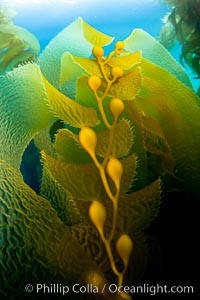
Kelp fronds and pneumatocysts. Pneumatocysts, gas-filled bladders, float the kelp plant off the ocean bottom toward the surface and sunlight, where the leaf-like blades and stipes of the kelp plant grow fastest. Giant kelp can grow up to 2' in a single day given optimal conditions. Epic submarine forests of kelp grow throughout California's Southern Channel Islands.
Species: Giant kelp, Macrocystis pyrifera
Location: San Clemente Island, California
Image ID: 25412
Species: Giant kelp, Macrocystis pyrifera
Location: San Clemente Island, California
Image ID: 25412
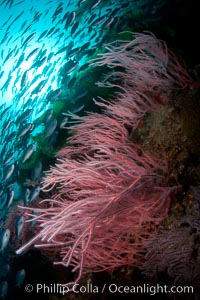
Red gorgonian on rocky reef, below kelp forest, underwater. The red gorgonian is a filter-feeding temperate colonial species that lives on the rocky bottom at depths between 50 to 200 feet deep. Gorgonians are oriented at right angles to prevailing water currents to capture plankton drifting by.
Species: Red gorgonian, Lophogorgia chilensis
Location: San Clemente Island, California
Image ID: 25413
Species: Red gorgonian, Lophogorgia chilensis
Location: San Clemente Island, California
Image ID: 25413
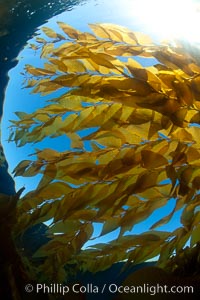
A view of an underwater forest of giant kelp. Giant kelp grows rapidly, up to 2' per day, from the rocky reef on the ocean bottom to which it is anchored, toward the ocean surface where it spreads to form a thick canopy. Myriad species of fishes, mammals and invertebrates form a rich community in the kelp forest. Lush forests of kelp are found through California's Southern Channel Islands.
Species: Giant kelp, Macrocystis pyrifera
Location: San Clemente Island, California
Image ID: 25432
Species: Giant kelp, Macrocystis pyrifera
Location: San Clemente Island, California
Image ID: 25432
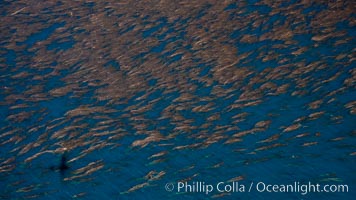
Kelp beds adorn the coastline of San Clemente Island, aerial photograph.
Species: Giant kelp, Macrocystis pyrifera
Location: San Clemente Island, California
Image ID: 25984
Species: Giant kelp, Macrocystis pyrifera
Location: San Clemente Island, California
Image ID: 25984
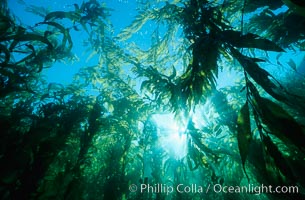
Kelp canopy.
Species: Giant kelp, Macrocystis pyrifera
Location: San Clemente Island, California
Image ID: 00250
Species: Giant kelp, Macrocystis pyrifera
Location: San Clemente Island, California
Image ID: 00250
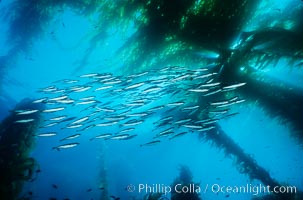
Jack mackerel schooling amid kelp forest.
Species: Pacific jack mackerel, Macrocystis pyrifera, Trachurus symmetricus
Location: San Clemente Island, California
Image ID: 00256
Species: Pacific jack mackerel, Macrocystis pyrifera, Trachurus symmetricus
Location: San Clemente Island, California
Image ID: 00256
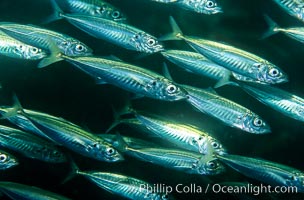
Jack mackerel schooling.
Species: Pacific jack mackerel, Trachurus symmetricus
Location: San Clemente Island, California
Image ID: 00293
Species: Pacific jack mackerel, Trachurus symmetricus
Location: San Clemente Island, California
Image ID: 00293
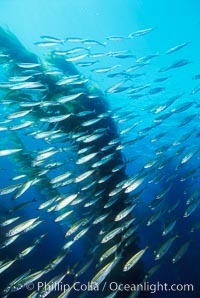
Jack mackerel and kelp.
Species: Pacific jack mackerel, Macrocystis pyrifera, Trachurus symmetricus
Location: San Clemente Island, California
Image ID: 00380
Species: Pacific jack mackerel, Macrocystis pyrifera, Trachurus symmetricus
Location: San Clemente Island, California
Image ID: 00380
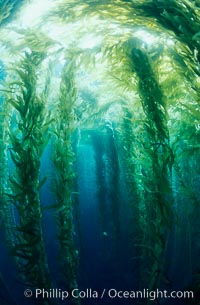
Kelp canopy.
Species: Giant kelp, Macrocystis pyrifera
Location: San Clemente Island, California
Image ID: 00600
Species: Giant kelp, Macrocystis pyrifera
Location: San Clemente Island, California
Image ID: 00600
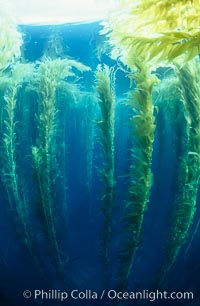
Kelp canopy.
Species: Giant kelp, Macrocystis pyrifera
Location: San Clemente Island, California
Image ID: 00601
Species: Giant kelp, Macrocystis pyrifera
Location: San Clemente Island, California
Image ID: 00601
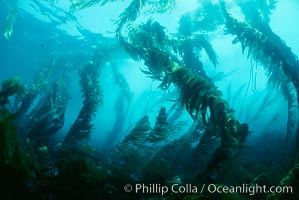
Kelp canopy.
Species: Giant kelp, Macrocystis pyrifera
Location: San Clemente Island, California
Image ID: 00602
Species: Giant kelp, Macrocystis pyrifera
Location: San Clemente Island, California
Image ID: 00602
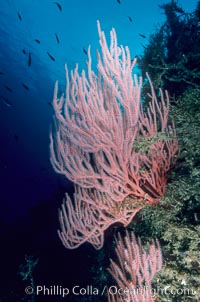
Red gorgonian clings to a vertical undersea reef at San Clemente Island, California.
Species: Red gorgonian, Leptogorgia chilensis, Lophogorgia chilensis
Location: San Clemente Island, California
Image ID: 00616
Species: Red gorgonian, Leptogorgia chilensis, Lophogorgia chilensis
Location: San Clemente Island, California
Image ID: 00616
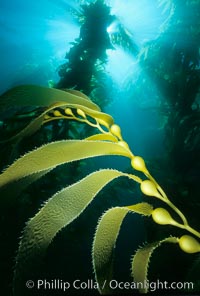
Kelp frond showing pneumatocysts.
Species: Giant kelp, Macrocystis pyrifera
Location: San Clemente Island, California
Image ID: 00617
Species: Giant kelp, Macrocystis pyrifera
Location: San Clemente Island, California
Image ID: 00617
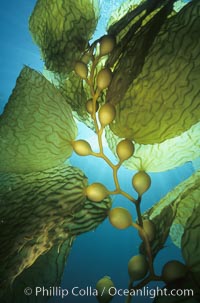
Kelp frond showing pneumatocysts.
Species: Giant kelp, Macrocystis pyrifera
Location: San Clemente Island, California
Image ID: 00628
Species: Giant kelp, Macrocystis pyrifera
Location: San Clemente Island, California
Image ID: 00628
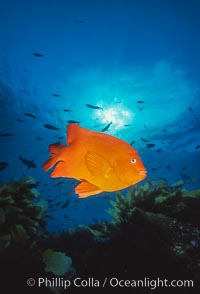
Garibaldi.
Species: Garibaldi, Hypsypops rubicundus
Location: San Clemente Island, California
Image ID: 00635
Species: Garibaldi, Hypsypops rubicundus
Location: San Clemente Island, California
Image ID: 00635
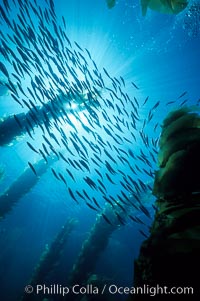
Jack mackerel schooling in kelp.
Species: Pacific jack mackerel, Macrocystis pyrifera, Trachurus symmetricus
Location: San Clemente Island, California
Image ID: 01019
Species: Pacific jack mackerel, Macrocystis pyrifera, Trachurus symmetricus
Location: San Clemente Island, California
Image ID: 01019
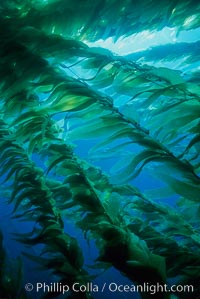
Kelp plants with fronds extended in current.
Species: Giant kelp, Macrocystis pyrifera
Location: San Clemente Island, California
Image ID: 01050
Species: Giant kelp, Macrocystis pyrifera
Location: San Clemente Island, California
Image ID: 01050
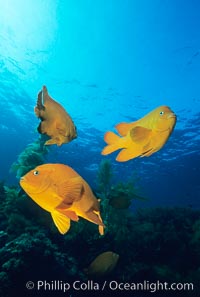
Garibaldi.
Species: Garibaldi, Hypsypops rubicundus
Location: San Clemente Island, California
Image ID: 01060
Species: Garibaldi, Hypsypops rubicundus
Location: San Clemente Island, California
Image ID: 01060
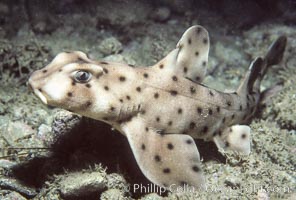
Horn shark.
Species: Horn shark, Heterodontus francisci
Location: San Clemente Island, California
Image ID: 01071
Species: Horn shark, Heterodontus francisci
Location: San Clemente Island, California
Image ID: 01071
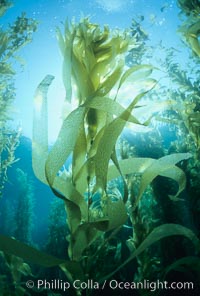
Kelp fronds.
Species: Giant kelp, Macrocystis pyrifera
Location: San Clemente Island, California
Image ID: 01273
Species: Giant kelp, Macrocystis pyrifera
Location: San Clemente Island, California
Image ID: 01273
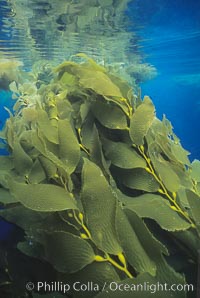
Kelp plants growing toward surface and spreading to form a canopy.
Species: Giant kelp, Macrocystis pyrifera
Location: San Clemente Island, California
Image ID: 01293
Species: Giant kelp, Macrocystis pyrifera
Location: San Clemente Island, California
Image ID: 01293
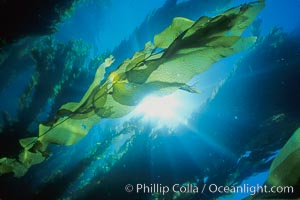
Kelp fronds and forest.
Species: Giant kelp, Macrocystis pyrifera
Location: San Clemente Island, California
Image ID: 01497
Species: Giant kelp, Macrocystis pyrifera
Location: San Clemente Island, California
Image ID: 01497
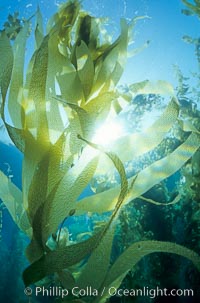
Kelp fronds.
Species: Giant kelp, Macrocystis pyrifera
Location: San Clemente Island, California
Image ID: 01498
Species: Giant kelp, Macrocystis pyrifera
Location: San Clemente Island, California
Image ID: 01498
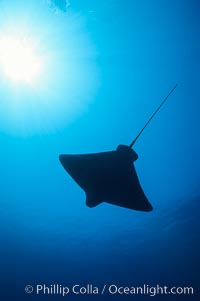
California bat ray.
Species: California bat ray, Myliobatis californica
Location: San Clemente Island, California
Image ID: 01917
Species: California bat ray, Myliobatis californica
Location: San Clemente Island, California
Image ID: 01917
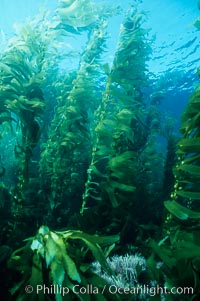
Kelp canopy.
Species: Giant kelp, Macrocystis pyrifera
Location: San Clemente Island, California
Image ID: 02118
Species: Giant kelp, Macrocystis pyrifera
Location: San Clemente Island, California
Image ID: 02118
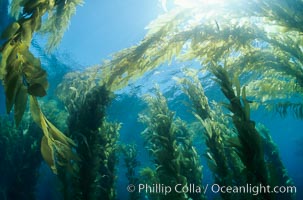
Kelp forest canopy.
Species: Giant kelp, Macrocystis pyrifera
Location: San Clemente Island, California
Image ID: 02121
Species: Giant kelp, Macrocystis pyrifera
Location: San Clemente Island, California
Image ID: 02121
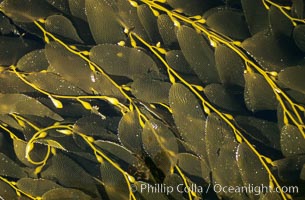
Kelp spread over ocean surface to form a canopy.
Species: Giant kelp, Macrocystis pyrifera
Location: San Clemente Island, California
Image ID: 02129
Species: Giant kelp, Macrocystis pyrifera
Location: San Clemente Island, California
Image ID: 02129
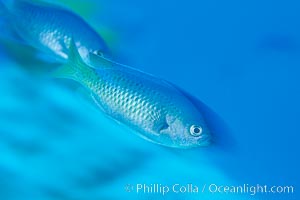
Blacksmith in motion, San Clemente island.
Species: Blacksmith, Chromis punctipinnis
Location: San Clemente Island, California
Image ID: 02345
Species: Blacksmith, Chromis punctipinnis
Location: San Clemente Island, California
Image ID: 02345
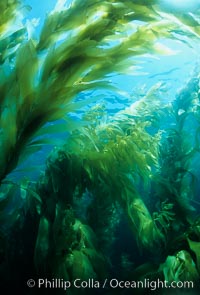
Kelp forest.
Species: Giant kelp, Macrocystis pyrifera
Location: San Clemente Island, California
Image ID: 02409
Species: Giant kelp, Macrocystis pyrifera
Location: San Clemente Island, California
Image ID: 02409
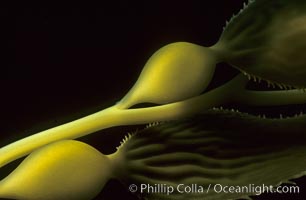
Kelp detail showing pneumatocysts (air bladders).
Species: Giant kelp, Macrocystis pyrifera
Location: San Clemente Island, California
Image ID: 02497
Species: Giant kelp, Macrocystis pyrifera
Location: San Clemente Island, California
Image ID: 02497